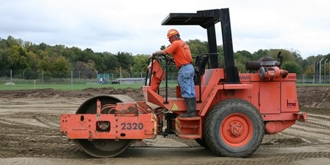Lancaster Trenching - Professional Trenching Solutions in Lancaster, Ohio
Lancaster Trenching - Professional Trenching Solutions in Lancaster, Ohio
Blog Article
Comprehensive Excavation Methods: Understanding the Fundamentals for Success
The careful preparation, exact execution, and thorough interest to information called for in excavation jobs require an extensive strategy that incorporates numerous fundamental facets. The true mastery exists not simply in recognizing these fundamentals but in perfectly incorporating them to browse the intricacies of excavation jobs with finesse.
Understanding Excavation Task Preparation

Successful excavation tasks are constructed on the structure of meticulous and detailed preparation. The preliminary stage of any excavation task is the planning phase, where important decisions are made that can significantly influence the outcome of the task. During this stage, it is important to collect all appropriate details about the site, consisting of topographical surveys, soil structure, and any possible dangers that might exist. Comprehending the task extent, budget, and timeline constraints is vital for developing an extensive excavation plan that guarantees the job's success.
One secret aspect of excavation job preparation is the advancement of an in-depth timeline that details the sequence of due dates, tasks, and landmarks. By meticulously taking into consideration all these factors throughout the preparation phase, excavation tasks can be implemented effectively and effectively, leading to effective results - septic ohio.
Soil Analysis and Site Analysis
Carrying out complete dirt analysis and website evaluation is a crucial action in the preparation stage of any excavation job. Soil analysis entails establishing the structure, framework, and properties of the soil at the excavation website. This details is vital for recognizing the soil's bearing capacity, moisture content, and potential for erosion, which are vital aspects in figuring out the excavation techniques and tools required for the job.
Website evaluation goes past soil analysis and includes a more comprehensive evaluation of the general site problems. This evaluation includes identifying any kind of possible hazards, such as underground utilities, environmental issues, or unstable terrain, that can influence the excavation procedure. By thoroughly evaluating the site, project managers can develop efficient excavation methods that prioritize safety and security, effectiveness, and environmental defense.
Using advanced modern technologies like ground-penetrating radar, dirt tasting, and drone surveys can improve the accuracy and efficiency of dirt evaluation and site assessment. Spending time and resources in these preliminary actions can eventually save time and prevent costly hold-ups or issues during the excavation procedure.
Equipment Option and Use
Efficient excavation tasks count heavily on critical devices selection and use to guarantee optimal efficiency and performance. Choosing the appropriate tools for the work is essential in optimizing performance and reducing downtime. Variables such as the type of dirt, depth of excavation, and job scope play a substantial duty in figuring out the most appropriate tools for the job at hand.

In addition to picking the proper tools, proper utilization is key to project success. Operators must be trained to deal with the devices securely and efficiently - lancaster trenching. Routine upkeep checks and prompt repair work aid protect against failures and make certain constant performance throughout the project
Safety Measures and Rules Compliance
In the world of excavation projects, focusing on precaution and compliance with guidelines is extremely important to making certain a protected and lawfully audio operational environment. Safety measures include a series of techniques, including carrying out comprehensive site analyses, carrying out appropriate signage and barriers, and providing ample safety and security training for all workers associated with the excavation procedure. Adherence to guidelines, such as OSHA demands in the USA, makes certain that the excavation job look at here now meets the necessary criteria to protect workers, spectators, and the surrounding environment.

Tracking Development and Adjusting Techniques
Exactly how can predict managers properly track the advancement of excavation tasks and adapt their methods accordingly to enhance end results? Tracking progression is necessary for making sure that excavation tasks stay on track and satisfy due dates.

Conclusion
To conclude, grasping the basics of comprehensive excavation techniques is vital for the success of any kind of task. By comprehending job planning, analyzing dirt and website official statement conditions, selecting suitable equipment, abiding by safety and security policies, and monitoring progression, task supervisors can ensure a smooth and effective excavation process. Carrying out these approaches will certainly result in effective outcomes and lessen prospective risks or setbacks during the excavation task.
The preliminary stage of any excavation task is the preparation phase, where vital choices are made that can substantially influence the end result of the project. Recognizing the task timeline, budget, and extent restrictions is essential for developing a detailed excavation plan that makes sure the task's success.
Exactly how can predict supervisors properly track the improvement of excavation projects and adjust their methods as necessary to optimize end results? By carefully checking progression and being eager to adjust methods, project supervisors can enhance the overall success of excavation tasks.
By recognizing task preparation, examining dirt and website conditions, selecting suitable devices, abiding with safety and security policies, and monitoring development, task supervisors can make certain a reliable and smooth excavation process.
Report this page